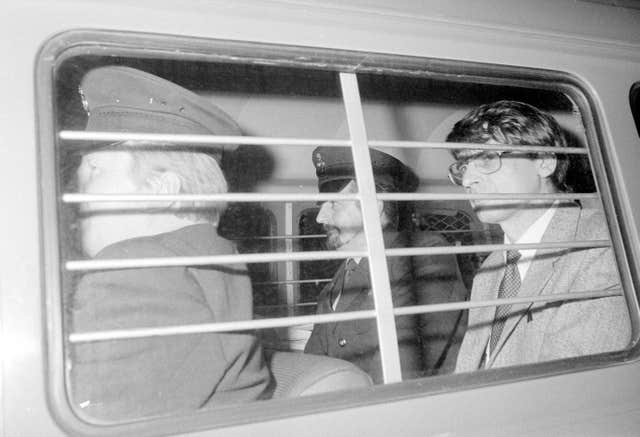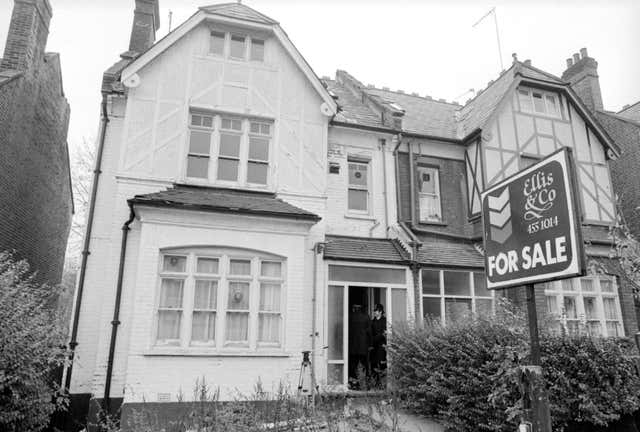Director of Dennis Nilsen film aims to explain how killer got away with crimes
Filmmaker Michael Harte had accesss to hours of the mass murderer’s private recordings.

The director of a new Netflix documentary about serial killer Dennis Nilsen has said he hopes to shine a light on how the murderer got away with his crimes for so long.
Nilsen died behind bars in 2018, at the age of 72, having carried out a murder spree during the late 1970s and early 1980s.
He is believed to have killed as many as 15 people, many of them homeless young gay men, after luring them into his north London home.
He was jailed for life in 1983, with a recommendation that he serve a minimum of 25 years, for six counts of murder and two of attempted murder.
Director Michael Harte made Memories Of A Murderer: The Nilsen Tapes using more than 250 hours of never-before-published cassette tapes of the killer’s private recordings from inside his prison cell and access to 7,000 pages of his unedited autobiography.
He told the PA news agency: “The idea in our mind at the time was that we’ve got all this archive, surely there’s a documentary that we can put together and maybe ask the question, why did he do what he did? Is this a way into his his mind? a serial killer’s mind.
“However, I spent seven or eight weeks listening to the audio, and it was a tough, tough process, it was probably made even harder because of the pandemic because I just didn’t have all my usual things to do to take a break from work, so it became quite intense.
“But what I realised was by the end of the eight weeks, when I had gone through all the tapes, was I feel and believe that we have here is more of a documentary, not about why Dennis Nilsen did what he did…but why did he get away with it. And how did he get away with it for as long as he did?

“This happened over four or five years and then there were attacks before that. So that was the question.”
Describing the act of sifting through the material, Harte said: “The more you dig into his story, the less you start to understand about him because he’s so contradictory.
“And what I realised is when I was listening to his audio tapes was if we’re going make this film, we obviously have to interview other people here.. and what I realised was that a lot of the things he was saying, more often than not, were being contradicted by other people, by the people I interviewed.
“So what I actually had on my hands more than anything was, here’s an unreliable narrator.
“But what I can try to understand is the fact that I could learn much more about why he got away with what he did. The second half the film is structured in such a way that that question starts to grow, why did he get away with so long.

“For me, that is (because of) prejudice. It seems that he understood prejudice himself, in terms of his background, not just in the police, but just the bigger picture in society.
“Prejudice really allowed it to happen again, and again, and again. People had tried to warn others that they’d been attacked, and they weren’t listened to, for various reasons.”
Memories of a Murderer: The Nilsen Tapes launches on Netflix on August 18.





